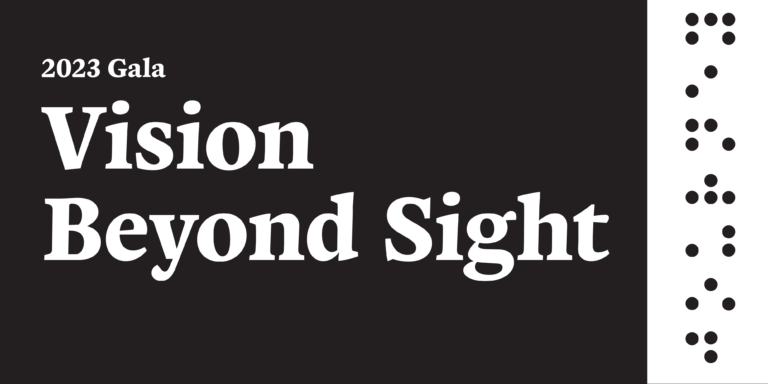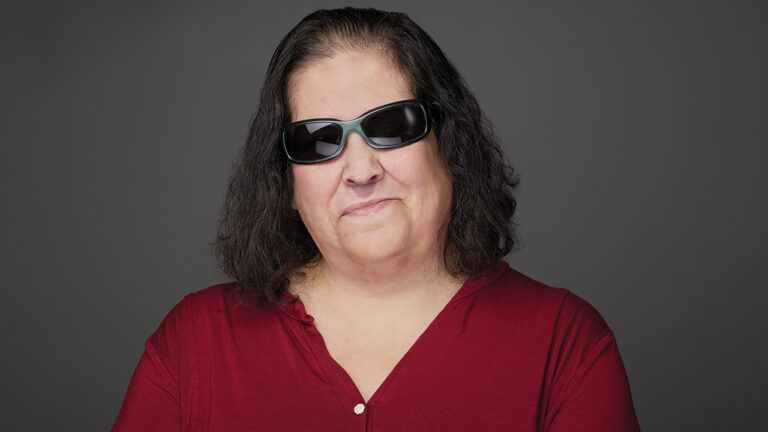Vision loss is often intimidating. There is a definite transition period, but adjusting to the world as a blind and visually impaired person can be easier with the right resources for the blind. Visual impairment doesn’t have to be an obstacle holding you back once you learn about the resources available to you. When you’re seeking answers and support, it’s great to have a network to turn too. In Nebraska, several entities exist and can assist with the transition and adjustment period.
The Nebraska Commission for the Blind and Visually Impaired (NCBVI)
As a vocational agency, NCBVI provides services assisting clients to achieve career and personal goals. Among its many services, NCBVI has an immersive training center. Clients learn nonvisual skills such as adaptive technology, Braille, orientation and mobility with a white cane. Click here for the NCBVI website.
The American Council of the Blind (ACB) and The National Federation of the Blind (NFB)
The ACB and NFB are the top two consumer organizations in the country. People with vision loss lead both groups. ACB and NFB work to break barriers for blind people through advocacy and education. The goals for the ACB and NFB are to empower blind people and to create equal opportunities for these individuals. Both have a Nebraska state affiliate and local chapters. Click here for the ACB Nebraska website. Click here for the NFB Nebraska website.
Outlook Nebraska
As a nonprofit, Outlook Nebraska provides several services to blind and visually impaired people. Approximately 60 percent of our associates are blind or visually impaired. Clients will learn how to use computers, smartphones and other devices through our adaptive technology training program. Each month, Outlook offers a variety of recreational activities for blind adults and youth. We partner with local theaters to bring audio description for visually impaired theater goers.
The Weigel Williamson Center for Visual Rehabilitation
The Weigel Williamson Center for Visual Rehabilitation helps people who are experiencing vision loss use their remaining vision. It conducts assessments to determine what vision remains. It also offers training on low vision technology.
Vision loss can be overwhelming, and finding the correct resources for the blind to fit your needs can be confusing. Here are some helpful suggestions to smooth the path:
Connecting with the Nebraska Commission for the Blind and Visually Impaired is a great first step. Vocational rehab counselors can assist with information referral, help determine eligibility for programs and services and work with you to set goals so you can live a full and active life. These goals are individualized and counselors can assess your circumstances, working with you to create rehab plans that suit your needs.
Whether you’re totally blind or have partial use of vision, learning nonvisual skills can greatly increase quality of life. Many partially sighted people benefit from a combination of low vision skills and nonvisual skills. Learning Braille, white cane travel, adaptive tech, and other nonvisual methods will allow you to have an arsenal of tools available to you no matter the situation.
Networking with fellow blindand VI people will be invaluable. Having a strong support system is crucial to overcoming obstacles, and this includes meeting other blind people. It’s good to know you’re not alone and learn from those who are further along on their path to acceptance. There’s nothing shameful about being blind, and having other blind people to connect with will provide you a strong foundation as you navigate vision loss. The ACB, NFB, and Outlook are perfect organizations to turn too to meet fellow blind and VI people.
You’re not alone. Many Americans experience varying levels of visual impairment. According to the CDCs website, 3.4 million people in the U.S. have vision loss. Connecting with the right resources will make a big impact on quality of life. Whether you need assistance understanding what services are available to blind and VI people, or you hope to learn more about accessible technology, or you wish to connect with other blind people, Nebraska has a variety of resources for the blind. There is life after blindness; you just need to find the networks that work for you.



